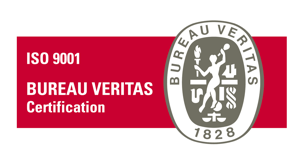Article

2020, year of the Unified Patent Court?
Update 27/03/2020 - On March 20, 2020, the German Constitutional Court announced its decision on the Unified Patent Court. The act of ratification of the UPC agreement by the Bundestag is considered void due to the failure to meet the required 2/3 majority of the members when voting. However, this certainly does not mark the end of the project. Federal Justice Minister at the Bundestag, Christine Lambrecht, says, "I will continue my efforts to ensure that we can provide European innovative industry with a unitary European patent with a European Patent Court. The Federal Government will carefully evaluate the decision of the Federal Constitutional Court and examine possibilities to remedy the identified lack of form before the end of this legislative period."
Update 03/03/2020 - On February 28, 2020, in line with Brexit and its desire to emancipate itself from the European institutions, the British government of Boris Johnson announced its intention to withdraw from the UPC.
Read our article: The United Kingdom announces its withdrawal from the Unified Patent Jurisdiction
***
On February 19, 2013 in Brussels, 25 Member States of the European Union signed Unified Patent Court Agreement, commonly known as UPCA. The Unified Patent Court (UPC) is intended to become a common jurisdiction for the contracting Member States. It will have exclusive jurisdiction over European patents and European patents with unitary effect. It will have the advantage of speeding up proceedings such as infringement or invalidity actions and should also ensure the quality of judgements handed down and as a result legal certainty within all contracting Member States.
However, for seven years now, the entry into force of the agreement has faced a number of difficulties which still make its future uncertain: a constitutional complaint in Germany on the one hand and Brexit on the other.
The conditions for entry into force of the Agreement are detailed in Article 89. The Agreement is to enter into force on the first day of the fourth month following the deposit of the thirteenth instrument of ratification. This requires ratification by the three Member States in which the highest number of European patents were in force in 2012, i.e. France, Germany and the United Kingdom.
As of this date, 16 Member States have deposited their instruments of ratification, including France (on March 14, 2014) and the United Kingdom (on April 26, 2018). All that is missing is Germany's ratification. However, in spring 2017, a complaint against the UPC Agreement was lodged with the German Federal Constitutional Court.
Peter Huber, the judge rapporteur of the case at the German Federal Constitutional Court, explained in an interview in Managing Intellectual Property at the end of November 2019 that the case had been delayed because there were other priority cases that had to be settled first. Although no specific date was mentioned, he indicated his willingness to render a decision in early 2020. He further specified that the timing would also depend on the time he and his fellow constitutional judges would need to deliberate.
Following this interview, Alexander Ramsay, Chairman of the UPC Preparatory Committee also shared his optimism in an interview with JUVE Patent. He remains confident that the German Federal Constitutional Court will confirm the constitutionality of the UPC Agreement and considers that it would be realistic to expect the UPC to be operational in early 2021.
The President of the European Patent Office (EPO), Mr. António Campinos, has shown to be equally if not more optimistic; In a meeting with the members of the UPC Preparatory Committee on 10 January 2020, he commented:
"We are confident that the necessary steps can be accomplished in time for the Unitary Patent package to become operational at the end of 2020”.
In the UK, following the "leave" vote in the 23 June 2016 referendum on UK membership of the EU, a a significant milestone was passed on 9 January 2020 when the Withdrawal Agreement Bill (WAB) was adopted by the House of Commons. The text enshrining the UK's divorce from the EU in UK law was adopted by a majority of 330 votes to 231.
This text, which acts the withdrawal of the United Kingdom from the EU, muts be approved by the House of Lords and then obtain royal assent before it passes into law. However, these final steps should not cast doubt on the exit date being fixed at 31 January 2020, with a transitional period running until 31 December 2020.
A few days before the House of Commons vote, Downing Street published a statement on the future relations of the United Kingdom with the European Union, excluding any jurisdiction of the CJEU in the United Kingdom. If the UK government adheres to this position it would preclude the UK from participating in the UPC.
The year 2020 therefore promises to be an exciting year for the future of the Unified Patent Court and should provide greater visibility as to the timetable and the entry into force of this new European jurisdiction.
Plasseraud IP Patents remains at your disposal to assist you in protecting your patents in Europe and internationally.
For further information:
JUVE Patent - “The UPC will be operational in early 2021” - JUVE Patent


























